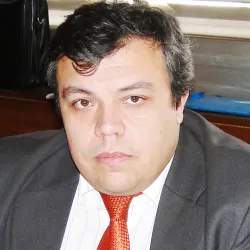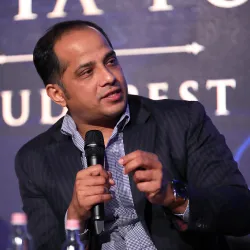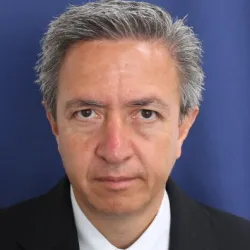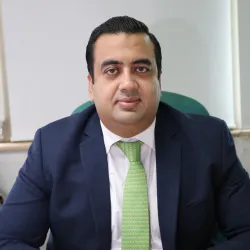Speakers 2020
Speakers 2020
Chairperson

Klaus Löber is the Chair of the CCP Supervisory Committee (CCP SC) in ESMA, which was established in 2020. His areas of responsibility encompass the tasks attributed by the European Market Infrastructure Regulation (EMIR) to the CCP SC, in particular the enhanced supervisory convergence towards EU CCPs and ensuring a resilient CCP landscape in the EU as well the monitoring and supervision of CCPs established in third countries in view of the risks that they may pose to the EU financial system. He is also chairing the ESMA CCP Policy Committee contributing to the EU Single Rule Book in the area of CCPs.
Prior to this role, Mr Löber was the Head of the Oversight Division of the European Central Bank in charge of the oversight of financial market infrastructures, payments instruments and schemes. Earlier positions include the Head of the Secretariat of the Committee on Payments and Market Infrastructures, the global standard setting body in the area of payments, clearing and settlement as well as positions in the European Commission, Deutsche Bundesbank and private practice.
Mr Löber regularly publishes on financial markets legal, regulatory and infrastructure issues and lectures at universities.
Klaus Löber
Chair, CCP supervisory committee
European Securities and Markets Authority (ESMA)
Speakers

Aleksi Grym
Head of fintech
Bank of Finland
Aleksi Grym is head of fintech at the Bank of Finland. He leads a team that manages a portfolio of projects related to fintech, new payment technologies and digital currencies. He is a member of the Eurosystem's digital euro project steering group. Before joining the Finnish central bank he worked in the consulting and technology investment industry for 15 years in London and Helsinki.

Aristides Cavalcante Neto
Chief of cybersecurity and technological innovation office
Central Bank of Brazil
Bachelor of Science in Computing and Master of Business Administration, Mr. Cavalcante works at Central Bank of Brazil for 22 years. He is Deputy Head of the IT department and Chief of Cybersecurity and Technological Innovation Office. He is in charge of fostering and collaborating in initiatives related to cybersecurity and technological innovation in the Brazilian financial system, like Distributed Ledger Technology (DTL), Open Banking and Regulatory Sandbox.

Scott Hendry
Senior special director fintech
Bank of Canada
Scott Hendry was appointed senior director Financial Technology (FinTech) in the Funds Management and Banking Department (FBD) of the Bank of Canada in June 2016. In this role, he oversees the Bank’s efforts to monitor and research developments and implications of new technologies affecting the financial sector. He previously held the role of Director of Research for FBD and, before that, for the Financial Markets Department (FMD). His personal research has focused on electronic money, price discovery in the Canadian government bond market, and central bank communication. He has a PhD in Economics from the University of Western Ontario.

Klaus Löber
Chair of the CCP Supervisory Committee
ESMA
Klaus Löber is the Chair of the CCP Supervisory Committee (CCP SC) in ESMA, which was established in 2020. His areas of responsibility encompass the tasks attributed by the European Market Infrastructure Regulation (EMIR) to the CCP SC, in particular the enhanced supervisory convergence towards EU CCPs and ensuring a resilient CCP landscape in the EU as well the monitoring and supervision of CCPs established in third countries in view of the risks that they may pose to the EU financial system. He is also chairing the ESMA CCP Policy Committee contributing to the EU Single Rule Book in the area of CCPs.
Prior to this role, Mr Löber was the Head of the Oversight Division of the European Central Bank in charge of the oversight of financial market infrastructures, payments instruments and schemes. Earlier positions include the Head of the Secretariat of the Committee on Payments and Market Infrastructures, the global standard setting body in the area of payments, clearing and settlement as well as positions in the European Commission, Deutsche Bundesbank and private practice.
Mr Löber regularly publishes on financial markets legal, regulatory and infrastructure issues and lectures at universities.

Julapa Jagtiani
Senior economic advisor and economist
Federal Reserve Bank of Philadelphia
Julapa Jagtiani joined the Federal Reserve Bank of Philadelphia as a special advisor in the Supervision, Regulation, and Credit Department in 2008. In this role, she has conducted research and participated in or led several supervisory policy and implementation projects, including CCAR stress testing, recovery and resolution plans, and Basel II qualification reviews for large and complex financial institutions, with a focus on the use of quantitative methods and models for risk management. She is also a fellow member of the Wharton Financial Institutions Center and a Central Bank Research Fellow at the Bank for International Settlements. A career highlight has been contributing to the discussion around the potential impacts of fintech and considerations for shaping future fintech regulations that protect consumers and encourage innovation.
Previously, Jagtiani was a senior economist at the Federal Reserve Banks of Kansas City and Chicago. Before joining the Federal Reserve System in 1998, she was associate professor of finance at Baruch College and assistant professor of finance at Syracuse University.
Jagtiani has made significant contributions in the fields of financial institutions, financial markets, and bank supervision and regulation. She publishes research in top finance journals, organizes conferences to connect regulators with academics and industry leaders, and is a frequent speaker at conferences and forums. Her research areas include banking policy-related issues, including too big to fail, systemic risk and financial stability, Basel II capital regulations, mergers and acquisitions, mortgages and home equity issues, and credit risk models and management. Her more recent research has focused on issues related to fintech, use of alternative data and AI/ML in credit decisions, small business lending, and community bank mergers.
Jagtiani has been active in the community and has served on the board of directors and finance committees at various organizations, including the Leadership Council Board of Directors for the American Red Cross, the Center for Practical Bioethics, and the Parents Council at Johns Hopkins University; she also belongs to the Union League of Philadelphia. Jagtiani has a Ph.D. in finance and an M.B.A. from New York University’s Stern School of Business, where she held the Rockefeller Foundation Fellowship.

Ricky Satria
Digital financial services specialist
Bank of Indonesia

Adolfo Sarmiento
Head of economic policy and markets
Central Bank of Uruguay
Adolfo Sarmiento is Head of Economic Policy and Markets, advising to the board at the Central Bank of Uruguay, he is responsible for the Monetary Policy implementation, and he’s also involved in FinTech specially in the CBDC Projects. He holds a degree in Economics of the University of the Republic of Uruguay, a Master in Applied Macroeconomics of the Catholic University of Chile and a PhD in Economics for the Catholic University of Argentina.

Assylbek Davletov
Chief fintech officer
Astana Financial Services Authority (AFSA)
Assylbek Davletov, is Chief FinTech Officer and the Member of the Executive Body at the Astana Financial Services Authority (AFSA). Mr. Davletov is responsible for development of regulatory policies aimed at facilitating the adoption of technological innovations in the financial services industry, and deployment of AIFC Fintech Regulatory Sandbox.

Björn Segendorff
Senior advisor
Riksbank
Björn Segendorf is Senior Adviser at the Payment Department at Sveriges Riksbank. His main areas of expertise are retail payments, financial infrastructure and related policy issues. The last 10 years he has increasingly been working with different aspects of the transition towards the cashless society., e.g. FinTech, innovation, the entry of non-banks and central bank digital currency. Björn has a leading role in the economic analytical work in the Riksbank’s CBDC project (e-krona) and acted as editor of the two first e-krona project reports. He is a member of the ECBS Market Infrastructure and Payments Committee and has participated in various BIS/CPMI working groups.

Nick Cook
Director of innovation
Financial Conduct Authority

Wiebe Ruttenberg
Senior advisor- DG market infrastructure and payments
European Central Bank
Wiebe Ruttenberg started his career in 1994 as a Policy Adviser to the Minister of Finance of the Netherlands on Energy, Telecom and Infrastructure Issues.
In 1999 he joined De Nederlandsche Bank (DNB) to become Project Secretary for the National 2002 Euro Changeover Project. After finalisation of the euro changeover he became Head of the Payments Policy Department at DNB.
From 2006 till 2015 Wiebe Ruttenberg was Head of the Market Integration Division at the European Central Bank, driving policy issues from a integration and innovation perspective on payments, securities and collateral. The creation of the Single Euro Payments Area (SEPA) was under his responsibility.
He was also member of the Market Infrastructure & Payments Committee of the European System of Central Banks (ESCB), chaired its Payment Systems Policy Working Group and managed the Secretariat of the Euro Retail Payments Board.
Currently he holds the position of Senior Adviser, focusing on technological innovation and cyber resilience within the financial sector. He chairs the ESCB Task Force on Cyber Resilience Strategy for Financial Market Infrastructures, manages the Secretariat of the Euro Cyber Resilience Board and is member of the European Systemic Cyber Group of the European Systemic Risk Board. The European cyber testing program TIBER-EU and the European Cyber Information and Intelligence Sharing Initiative (CIISI-EU) are under his responsibility.

Sopnendu Mohanty
chief fintech officer
Monetary Authority of Singapore
Sopnendu Mohanty, currently the chief fintech officer at the Monetary Authority of Singapore, is responsible for creating development strategies, public infrastructure, and policies around technology-driven innovation. Mohanty has over two decades of public and private sector experience in technology, operations, digital Finance, and investment strategies. Mohanty extensively engages with global technology and financial services ecosystems and has championed notable collaborative public goods like API Exchange (APIX), Singapore Fintech Festival, Payment Rails, Data exchange platforms, and experimental programs like UBIN. In addition, Mohanty advises many international global advisory bodies on Fintech, Innovation and Inclusion. Within five years of his leadership, Singapore has become a leading global Fintech hub producing unicorns and home to many vibrant fintech companies. He has co-authored several patented works in the application of digital technology in Finance and won many industry recognitions.

Ramūnas Baravykas
Advisor to the executive director, supervision service
Bank of Lithuania
Project manager of Risk-based Supervision Model Implementation into the Supervisory Activities project;
Under my leadership, an e-Licensing tool was developed, which allows FIs to submit applications electronically and allows automated application evaluation by including the necessary expertise and information on issued licenses to be submitted to the LIS system of the Center of Registers and the Lietuvos bankas website.
Under my leadership, the Supervision Service information system ProTas was developed and implemented. IT tools supporting business processes were implemented: the Register of Sanctions, the Register of Inspections, the Register of Consumer Disputes and Complaints and tools to support settlement process, dispute submission via electronic channels.
Head of Risk Modelling Division, 2012–2015
Quantitative models of selection and risk assessment were implemented.
INSURANCE SUPERVISORY COMMISSION OF THE REPUBLIC OF LITHUANIA
Deputy Chair, 2008–2012
At the same time – European Insurance and Occupational Pensions Authority (EIOPA) (Member of Board of Supervisors; Financial Stability Committee; Information Technology and Data Committee); European Systemic Risk Board (ESRB) (General Board; Special Advisory Committee); Nordic-Baltic Stability Group (NBSG).
Head of Information Analysis, 2006–2008
Actuary, 2004–2006

Wanpracha Chaovalitwongse
Senior director department of data management and analytics
Bank of Thailand
Dr. Wanpracha Chaovalitwongse is Senior Director and Head of Data Management and Analytics at Bank of Thailand. Before joining BOT, he served as the 21st Century Leadership Endowed Chair in Engineering, Professor of Industrial Engineering, and Co-Director of the Institute of Advanced Data Analytics at the University of Arkansas. He previously held faculty positions at University of Washington, Princeton University and Rutgers University. Before working in academia, he worked at the Corporate Strategic Research, ExxonMobil Research & Engineering. He currently holds three patents of seizure prediction system and an intellectual property on opioid risk prediction tools. He has been invited to give lectures in top institutions around the world including Amazon, Facebook, MIT, Princeton University, University of Michigan, University of London, National University of Singapore, Peking University, Chinese Academy of Sciences, City University of Hong Kong, Seoul National University, and KAIST.

Chris Redl
Economist
IMF

Eleni Kalamara
Researcher
KCL

Marius Jurgilas
Board member
Bank of Lithuania
Marius Jurgilas has brought his experience in both academia and government to the important role of Member of the Board of the Bank of Lithuania with responsibility for supervisio, payment systems and research. During his tenur Lithuania emerged as a top jurisidiction for fintech companies witin the EU under the leadership of the Bank of Lithuania, forging Mr Jurgilas' reputation as a leading European thinker on the future of banking.

Makoto Takemiya
CEO
Soramitsu
Makoto Takemiya is a co-founder and the group CEO of Soramitsu. He has authored more than 20 peer-reviewed scientific papers and actively engages in research. He has an M.S. in Computer Science from the California Polytechnic State University at San Luis Obispo. At Soramitsu he has helped lead the creation of Hyperledger Iroha, a settlement system for the National Bank of Cambodia and a Decentralized Digital Depository for digital assets called D3 Ledger. He also has contributed to SORA, the decentralized Autonomous Economy, as well as Polkaswap, a DEX for the Polkadot ecosystem.

Tanai Khiaonarong
Senior financial sector expert
IMF
Tanai Khiaonarong is a Senior Financial Sector Expert in the Payment, Currencies, and Infrastructure Division of the Monetary and Capital Markets Department of the IMF. He serves as assessor of systemic financial market infrastructures in FSAPs, technical assistance advisor on payments oversight and modernization, and representative in the CPMI and IOSCO. Tanai was formerly with the Bank of Thailand, where he was Deputy Director in the Payments Systems Policy Department, Head of International Banking Policy in the Financial Institutions Strategy Department, and Head of the Secretariat for the Working Committee on Payment and Settlement Systems of the ASEAN Central Banks. He worked at Andersen Consulting (Accenture) and the Bank of Finland. Tanai holds a PhD in Information Systems from the London School of Economics and is a member of the Editorial Board of the Journal of Payments Strategy and Systems. He has written on cash use, central bank digital currencies, correspondent banking, distributed ledger technology, fintech and financial services, mobile payments oversight, payments regulation, and stablecoin arrangements.

Maciej Piechocki
Member of the management board
BearingPoint RegTech
For the last 10 years, Dr. Maciej Piechocki has been specializing in the areas of digitalization, regulation and Big Data especially in the financial services sector. In his role, Maciej Piechocki is responsible to deliver services and solutions to clients such as banks, insurance companies, central banks and supervisory authorities in the areas of regulatory reporting, regulatory management and regulatory analytics. He deals with regulations such as Basel III, Solvency II, IFRSs, MiFID but also implements standards such as XBRL or SDMX. Moreover, Maciej Piechocki is driving the international market development for BearingPoint’s RegTech solutions and is responsible for Alliance Management.

Daniel Muench
Business advisor emerging technologies
BearingPoint RegTech
Daniel Muench is responsible for Emerging Technologies at BearingPoint RegTech and is working on solutions for the future of regulatory reporting. He is currently developing concepts on how digitization of regulatory reporting could revolutionize the way regulators work, and how modern technological approaches like DLT, AI, and Big Data can support these approaches. With the G20-shortlisted “RegOps” approach, he aims to deliver the first step of this future vision by bringing standardized data models & logic, end-to-end integration of data flow, and a big data-ready regulatory platform to RegTech. Daniel works passionately on the topic of banking regulation and banking regulatory reporting since almost 10 years, and gained many insight in the functioning of regulatory data in the financial industry.

Dinesh Shah
Director, fintech research
Bank of Canada
As Director Fintech Research, Dinesh leads the technical development of a central bank digital currency in support of the Bank of Canada’s policy to build this capability as a contingency measure. He also leads the technology aspect of the research agenda in fintech, most notable project Jasper, which supports economic and financial system research into the implications of such technologies to the core mandates of the Bank.
Dinesh joined the Bank of Canada in 2009 as an Enterprise Architect. Before joining the Bank, has been a co-founder and architect at various start-ups. He spent 8 years as a developer of various fixed-income trading and risk management systems at financial institutions in London. In addition, he provided expertise on the application of leading-edge technologies to securities trading and clearing firms.
Dinesh holds a BSc (hons) in Physics with Computing from The University of Kent in the U.K.

Alejandro Alegre
General director of issuance
Bank of Mexico
Mr. Alejandro Alegre is 56 years old, he is a lawyer, worked during 14 years at Civilian Intelligence Services in México. He was General Director of Planning Center for Drug Control, the Intelligence Agency of the Office of the Mexican Attorney General and also General Director of the National Security Intelligence Center (CISEN).
Since 2001 he has been working in Bank of Mexico, where he has been Advisor to the Board of Governors, Security Director, General Director of Planning and Budget and since 2011 he is General Director of Currency Issuance and Main Cashier.

Abdul Rahim Ahmad
CIO & CISO
Securities and Exchange Commission of Pakistan

Kimmo Soramäki
Founder and CEO
FNA
Kimmo Soramäki is the founder and CEO of Financial Network Analytics (FNA) and the founding editor-in-chief of The Journal of Network Theory in Finance. He started his career as an economist at the Bank of Finland where he developed in 1997 the first simulation model for interbank payment systems. In 2004 while at the research department of the Federal Reserve Bank of New York, Mr Soramäki was among the first to apply methods from network theory to improve our understanding of financial systems. During the financial crisis of 2007-2008 he advised several central banks, including the Bank of England and European Central Bank, in modelling interconnections and systemic risk. This work led him to found FNA in 2013 provide solutions to monitor the complex financial networks that play a continually larger role in the world around us. Mr Soramäki holds a Doctor of Science in Operations Research and a Master of Science in Economics (Finance), both from Aalto University in Helsinki.

Chevanese Morais
Division chief
Bank of Jamaica
Chevanese is a career central banker with 25 years in Bank of Jamaica’s Research and Economic Programming Division. In August 2005, she was appointed to the Banking and Market Operations Division as Technical and Administrative Adviser, with responsibility for providing high level technical support to the Division Chief. Since July 2019, she has assumed responsibility for the Banking & Currency Operations in the Capacity of Division Chief.
Chevanese possesses a Master of Science degree in Finance (Economic Policy) from the University of London and a Bachelor of Arts, General, from the University of the West Indies. She is an avid tennis fan, enjoys reading, gardening and working out at the gym in her spare time.

Nick Carver
Global brand director
Central Banking
Nick Carver is the global brand director of Central Banking Publications. He was assistant editor of Central Banking for five years and has co-edited (with Robert Pringle) Central Banking Publications’ annual Reserve Management Trends publication since its launch in 2005. He graduated with a master’s degree in economics and politics from the University of Edinburgh, and taught English in Japan for two years before joining Central Banking Publications.

David Sipahutar
Analyst - currency management development team
Bank Indonesia
He was responsible for the project planning and procurement of new cash processing systems for BI offices in 2015 He was
also the team member for the preparation of the currency management framework 2019 2025 which was approved by the
board of governor in 2019 Since 2015 he has been working as member of the task force for the project to establish Bank
Indonesia new, modern and automated cash center in Jakarta and East Java which are planned to be launched in 2024
Currently, his main responsibility is to provide assessment and recommendation to the Head of Currency Management
Department, mainly in the subject of cash distribution network, cash infrastructure capacity planning, and cash demand
estimation

Elisabeth Noble
Senior policy expert
European Banking Authority
Elisabeth Noble is a Senior Policy Advisor at the European Banking Authority. She leads the EBA’s work on crypto-assets, DLT, and the platformisation of financial services and is the EBA coordinator for the European Forum for Innovation Facilitators. She represents the EBA in EU and international standard-setter policy work streams relating to FinTech, market-based finance, financial system interconnectedness, market access and the regulatory perimeter. She is contributing to the delivery of the EU Digital Finance Strategy and was a member of the European Commission’s Expert Group on Regulatory Obstacles to Financial Innovation (now disbanded). Prior to joining the EBA, Elisabeth was at the UK’s finance ministry (2008-14) advising primarily on the response to the financial crisis and the post-crisis domestic and EU regulatory reforms, including the reforms to the regulatory architecture in the EU (Banking Union). Elisabeth has also spent some time in the private sector.